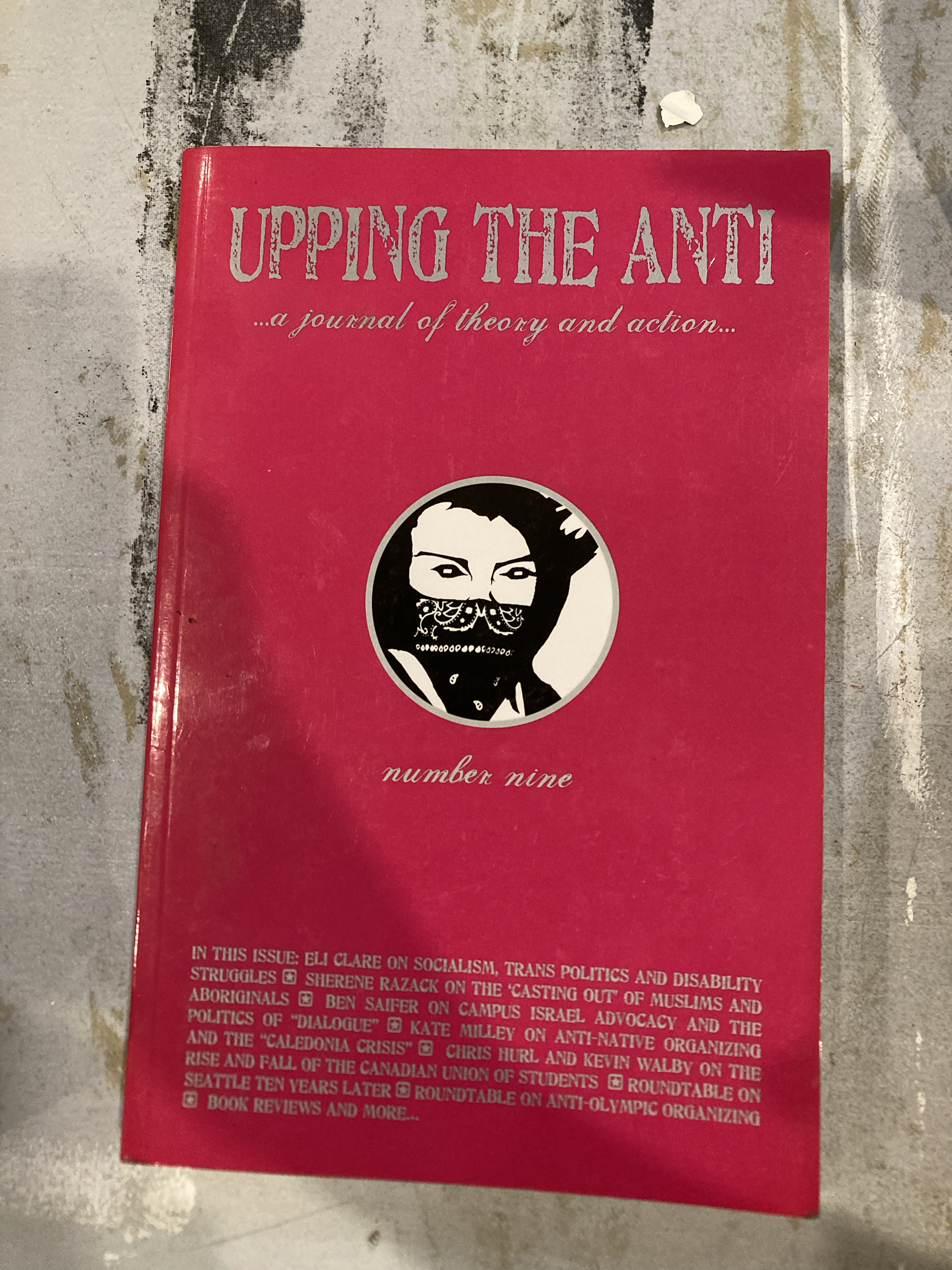
We begin this issue with interventions from our readers which support, challenge or complete content from past issues. In our interviews section, Kelly Fritsch talks with disability, queer and trans activist, Eli Clare.
Sharmeen Khan and Natalie Kouri-Towe interview leading scholar Sherene Razack about her book, Casting Out: The Eviction of Muslims from Western Law and Politics.
In our first article, Palestine solidarity activist Ben Saifer analyses the emergence and assesses the implications of Zionist-initiated "dialogue" efforts on Canadian university campuses. Next, Kate Milley examines the organization of anti-native activism in response to the struggles of the Six Nations people on the Haldimand tract, revealing the broader, deeply entrenched racism and colonial logic of Canadian society. Finally, Chris Hurl and Kevin Walby untangle common assumptions about student movement politics in their historical analysis of The Canadian Union of Students from 1965-1969.
Our roundtables section begins with a tenth anniversary reflection on the mass mobilization against the World Trade Organization in Seattle in 1999. Contributors offer retrospective analyses of this pivotal moment of the anti-globalization movement. The second roundtable discussion addresses anti-Olympic organizing. We hear from activists preparing for the upcoming mobilizations against the Vancouver 2010 games, and from those who organized against the games in Salt Lake City, Turin, and Sydney.
The book reviews section features Sean Benjamin's review of Black Flame: The Revolutionary Class Politics of Anarchism and Syndicalism, and Jeff Shantz's review of The Red Army Faction, A Documentary History, Volume 1: Projectiles for the People.

